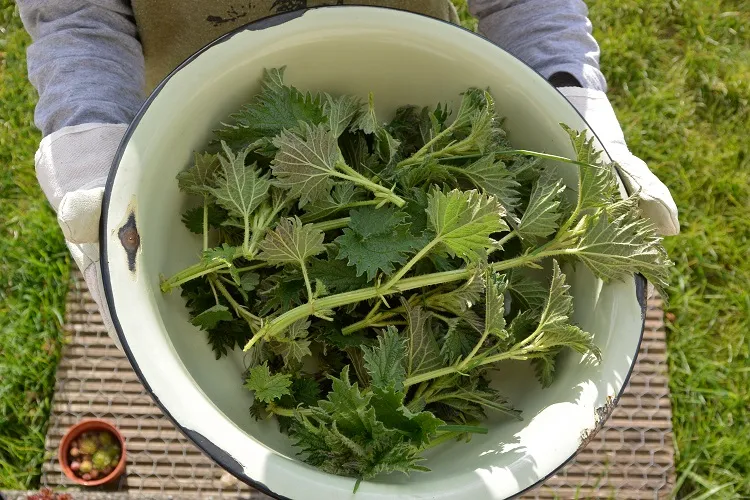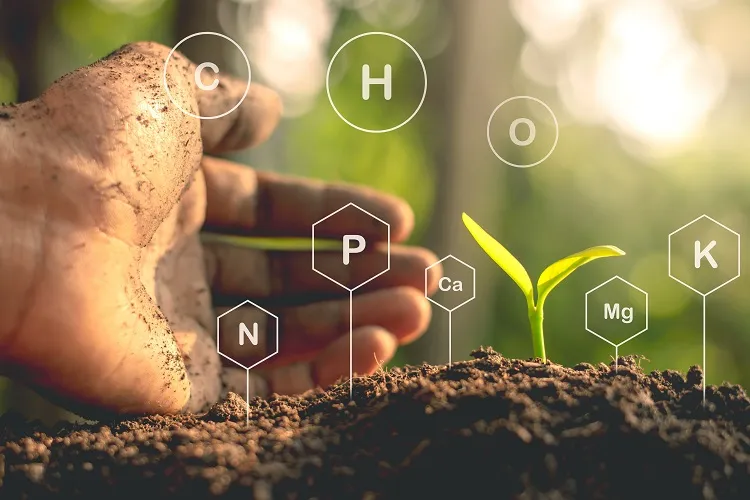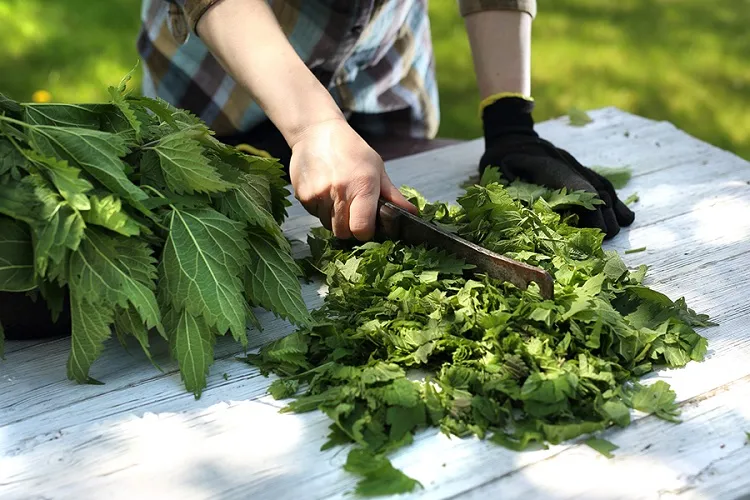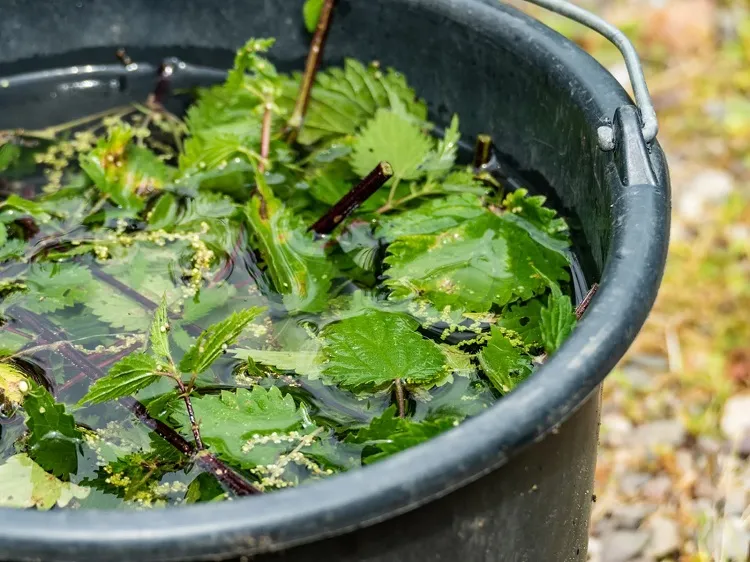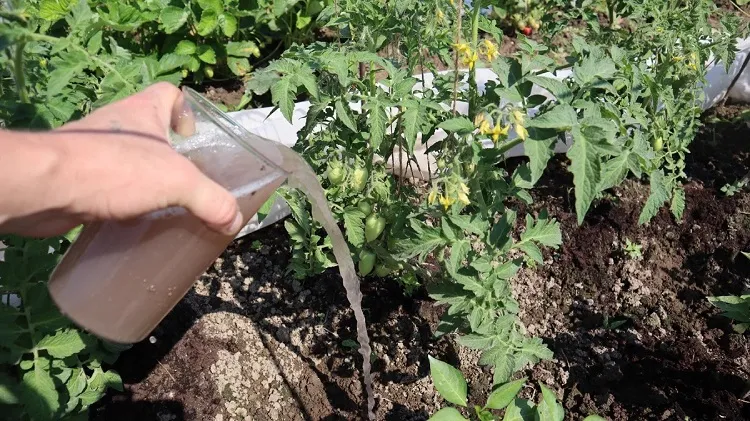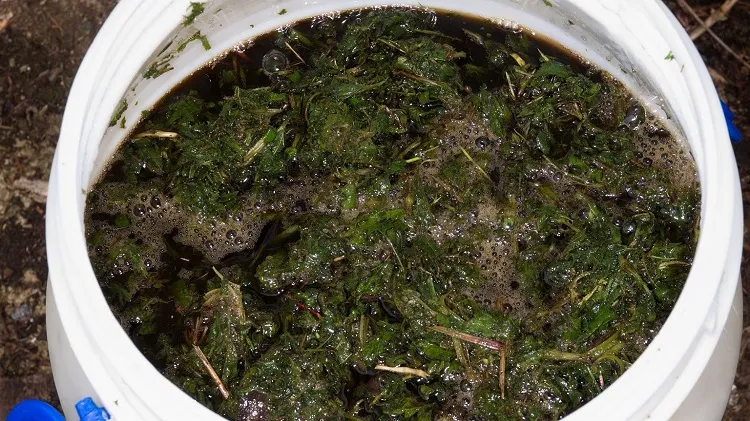Nettle fertilizer is a valuable asset for tomato growers who are seeking for an organic and nourishing food for their plants. This environmentally friendly composition is rich in vital elements, and the natural growth-enhancing qualities makes it a superior possibility compared to chemical nutrition. How to prepare nettle fertilizer for tomatoes? What are the numerous advantages of this food for plants?
Is Nettle Fertilizer Good for Tomato Plants?
Every homeowner would like to cultivate healthy tomato plants with an abundance of fruits, so you should be careful which fertilizer to choose to reach this task you’ve set for yourself. When thinking about a natural and sustainable way for achieving bountiful results for tomatoes, nettle fertilizer is an ideal solution according to popularity and efficiency. It is extracted from the common stinging nettle plant (Urtica dioica), and offers an abundance of benefits, which contribute to the overall vitality and productivity of plants.
What Are the Benefits of the Nettle Fertilizer for Tomatoes?
- Contains vital elements (N-P-K). With this wealth of nutrition, nettle fertilizer benefit tomatoes for stable growth and an abundance of fruits. All the main elements, which tomatoes need – nitrogen, phosphorus, and potassium (N-P-K) – are available in nettle fertilizer, in a natural form. They are required from the plants for the various facets of their growth, from stable root development to abundant greenery and fruitful harvest.
- Organic nature. This is one considerable privilege of nettle fertilizer. It does not have the noxious effect of chemical nutrition, which import harmful elements into the soil. Instead, this organic nutrition solves the problem with plant’s food naturally, and nourishes tomatoes without any detrimental impact on the environment. This makes it a great solution for homeowners who embrace sustainable way of living with the less possible ecological footprint.
- Indispensable micronutrients (Mg, Ca, Fe). Nettle fertilizer is rich in magnesium, calcium, and iron, which are substantial for ensuring against appearance of nutrient deficiencies that may result in stunted development and weak fruit growth. Moreover, this valuable nutrition works like a growth impulse thanks to its high concentration of rapid development supporting hormones like auxins and cytokinins. They foster roots development, reinforce stems, and increase flowers’ and fruits’ growth.
- Defense against pests and diseases. Additionally, this organic fertilizer has been proved to enhance the defense of tomatoes against pests and diseases. The substances contained in nettle have insect-deterring qualities and increase the plant’s resistance to a number of main garden pests. This decrease in pest infections not only develops healthier plants, but also exclude the need for synthetic pesticides.
Read also: Organic Fertilizers for Vegetables: Feed Your Plants in the Garden with Natural Fertilizers!
Fertilize Tomatoes with Nettle – A Short Guide
Preparing an efficient nettle fertilizer for tomatoes requires the following few easy steps:
- Pick young nettle leaves. Seek for fresh leaves, the best choice are ones that are in their first phase of growth. Ensure your safety by wearing gloves to defend your hands from the stinging hairs on the plants’ leaves and stems.
- Cut the leaves into pieces. When you’ve picked them, chop the leaves into small particles to help the breakdown process.
- Prepare nettle tea. Now, you should choose one of the two methods: making tea or fermented leaves. If you aim to make a tea, place the cut leaves in a pot, and cover them with water. Let the mixture steep for 7 days, while mixing it at times. The resulting solution should be diluted with water in ratio 1:10, and poured on the soil around the plants.
- Preparation of fermented nettle. The other method of making nettle fertilizer is by fermentation. Place the chopped leaves in a bucket and pour water till covering them. Leave the solution to ferment for a month, stirring it at times. Finally, strain the liquid, dilute it in ration 1:10, and utilize as a powerful fertilizer.
Applying the Nettle Solution for Tomato Feeding
Before pouring the organic fertilizer, water the soil near the tomatoes completely. This is needed to make the nutrients be absorbed efficiently by the roots. Apply the diluted with water rich in nutrients solution around the base of the plants, in order not to splash the leaves to prevent from possible burns by the liquid.
How Often Should You Fertilize with Nettle?
In common cases, you should fertilize your tomato plants with this organic solution every two to three weeks through the growing season. While they are in the first phase of growth, the plants require a little bit more often feeding with the solution to promote their fast development. While they headway through flowering and fruiting periods, you should lower the frequency of helping them with the feeding, while concentrating on keeping continuous moisture around roots and maintaining plants’ good condition.
Read also: Coffee Grounds Fertilizer: Boost Your Plants to Flourish Naturally with Time-Saving Solutions!

